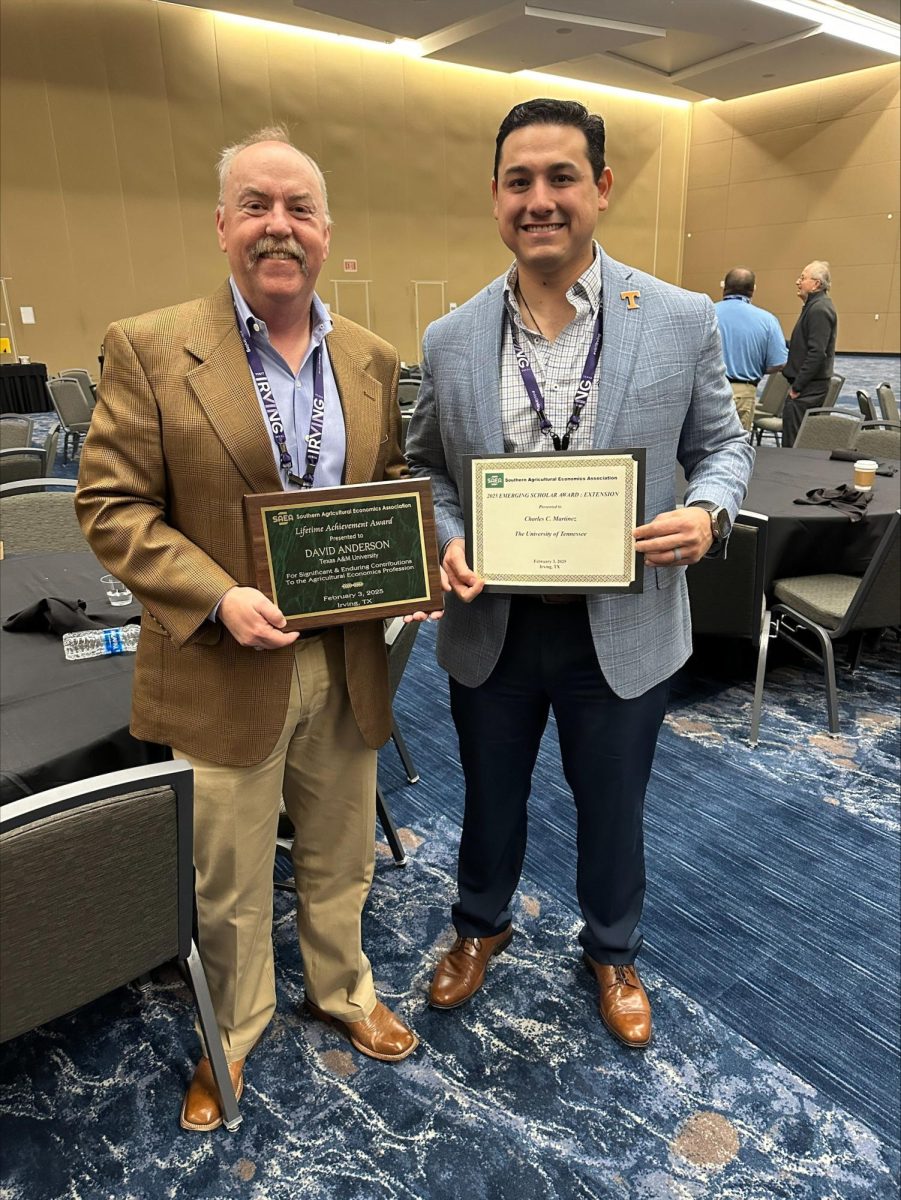At 4 p.m. on Monday, April 19, the City of College Station held a special meeting to vote on enacting a Restricted Occupancy Overlay, or ROO, within specific communities of the city.
Following the call to order, Alyssa Halle-Schramm, the project manager for the ROO ordinance, gave an overview of the ordinance. Halle-Schramm said the city council began planning the ordinance early in 2020, workshopping with the Planning & Zoning Commission. After a meeting in August, the city council took time to review what the definition of family included.
Halle-Schramm said the council held meetings for public input and drafted a proposed ordinance. The proposed ordinance changes the current housing ordinance to where only two unrelated people may live in one household in certain zoning districts, opposed to the four unrelated people residing in a household which is currently allowed. For the ROO to be enacted within a zoning district, 50 percent plus one of the residents of a neighborhood must vote in favor of the ordinance. However, if 20 percent of the acreage in a certain neighborhood signs a petition against a ROO in their neighborhood, the ROO for that area must be passed with three-fifths majority by the city council.
“Single-family overlays can only be applied to single-family zoned neighborhoods,” Halle-Schramm said. “ROO is intended to preserve the single-family character of neighborhoods. This sets up that the ROO application must be collected by the petition committee. It is meant to be a citizen- and neighborhood-driven process.”
The ROO ordinance includes a legacy clause that allows for current households with more than two unrelated members to continue living together. Initially, if the household demographics changed, with only one family living in the house or one family and one unrelated person, the grandfather clause would be lost, Halle-Schramm said. The city council voted to amend this though and as long as it does not go above four unrelated members then the grandfather clause can remain despite any change in demographic.
“Any occupancy level over two [nonrelated people], but not exceeding four, which is our current ordinance, are permitted to continue and are considered a nonconforming use,” Halle-Schramm said.
After Halle-Schramm’s presentation and explanation of the proposed ROO, the council members were given the opportunity to ask questions and raise concerns. Of these concerns and amendments brought forth, Elizabeth Cunha, place 4 councilmember, discussed how some of the rules of ROO could be discriminatory and their material does not reflect the diverse population of College Station.
“If you have three siblings and a roommate, they’re fine, but if they’re four students under a ROO they cannot live together,” Cunha said, before requesting the ROO handbook be translated to Spanish. “My last comment, and I’m probably a little sensitive to it because I come from a biracial family, but I would love it if our handbook represented the diversity in our community.”
Cunha said her family often opens her home for friends in transitional periods to live with them, using an unrelated mother and child as an example. Halle-Schramm said, in response to this, if it is more than one person they will be in violation of the ROO, even if the unrelated people are not charged rent. Cunha replied that the fines for violating the ROO per day are more than what she makes per year.
Editor’s Note: The fines associated with the Restricted Occupancy Overlay only happen after someone is taken to court for being in violation of the ordinance. The level of fines are determined by the judge in this situation.
Place 2 Councilmember John Crompton also agreed with the discriminatory tendencies that could be brought up and suggested amendments were agreed upon to avoid this.
While a number of concerns were raised, Dennis Maloney, place 6 councilmember, said no matter what they decide and amend, people will be unhappy, but he has seen community members fighting for a ROO ordinance for upward of 30 years.
“Any rule or regulation is going to hurt someone,” said Maloney. “I understand some people might be hurt by this, but someone will be hurt in every rule of life. We aren’t going to make everyone happy.”
Supporters of the ROO, such as Maloney, said the ordinance protects neighborhoods from dramatic changes over the next decade, encourages family communities, reduces accelerated gentrification and lowers the costs of living within neighborhoods that choose to enact the ROO. Several city council members in support of the policy said it’s important to remember that by passing the ordinance, it only offers the option for neighborhoods to decide whether or not they want to implement the guidelines.
The city council took a recess for dinner before welcoming the City Attorney Carla Robinson to discuss the legality of the ordinance.
“The council has the ability to enact, and the city has the jurisdiction to enforce this kind of ordinance,” Robinson said. “This, of course, can change in the future.”
Five citizen speakers, speaking on behalf of particular groups, were given 10 minutes to voice their concerns before the council. Of these speakers, several spoke on how the ROO clause functions against rental properties and renters. Texas A&M Student Senate Community Relations Committee Chair Carly Oldag spoke against the ROO ordinance on behalf of the Student Government Association, saying it stereotypes and disadvantages the students who make up a majority of the city.
“I’m here to represent the student population,” Oldag said. “The Texas A&M Student Senate believes that the ROO serves as a tool of exclusion … What we are saying is this ROO is not the solution.”
Of the five citizen speakers, four of them represented groups against the ROO, primarily on the grounds of discrimination and socioeconomic disadvantages. The one speaker who didn’t oppose it explicitly spoke of amendment recommendations for the ROO. Following the representatives of groups, many individuals were given the opportunity to speak for no more than three minutes to voice concerns, support or suggestions.
After a five hour special meeting, the motion to implement the ROO ordinance in the City of College Station passed 5-2, with Elizabeth Cunha and Karl Mooney, mayor of College Station, voting against.
For more information on ROO, visit the City of College Station’s website.
College Station City Council adopts ROO option for neighborhoods
April 19, 2021
Photo by Photo by Abbey Santoro
Columnist Caleb Powell analyzes his interviews with three candidates for College Station’s City Council Place 5.
0
Donate to The Battalion
$2790
$5000
Contributed
Our Goal
Your donation will support the student journalists of Texas A&M University - College Station. Your contribution will allow us to purchase equipment and cover our annual website hosting costs, in addition to paying freelance staffers for their work, travel costs for coverage and more!
More to Discover










